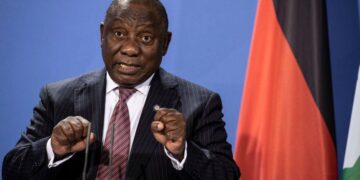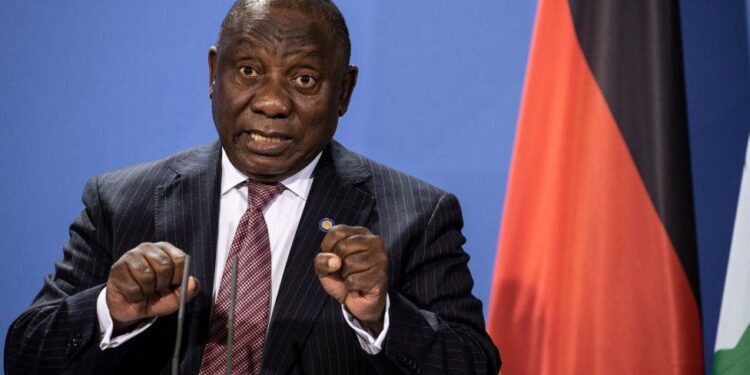By Ebi Kesiena
South Africa’s President Cyril Ramaphosa on Wednesday said his government was closely watching ongoing anti-migrant protests to prevent them from descending into xenophobic attacks, amid growing public anger at foreigners.
As the continent’s leading industrialised economy, South Africa is a magnet for migrants, especially from other African countries.
With unemployment at 35 percent, climbing as high as 65 percent among young people, competition for jobs has caused resentment among unemployed South Africans.
Scores of protesters, some of them topless =-have in recent weeks been staging demonstrations against illegal migrants in what they dubbed Operation Dudula, Zulu for “drive back”.
Ramaphosa said his government was aware of “pockets of groupings that are trying to foment a type of negative attitudes and feelings” towards foreigners.
“Obviously we are keeping a watchful eye on the way that people are responding to the presence of people from other countries in our own country,” Ramaphosa told reporters in Cape Town after addressing lawmakers.
The security agencies were “watching” and will “make sure these things will not result into violence against people from various other countries”.
“We have made it clear as South Africans that we are not xenophobic, we do not hate people from other countries. In fact, we embrace people from other countries.”
He promised to address “with the sensitivity that it requires” concerns that foreigners are taking jobs meant for South Africans.
Ramaphosa says his greatest concern is the state of the South African economy and the staggering levels of unemployment among his country’s 59 million people.
“It’s the state of our economy that keeps awake,(and the) state of unemployment.”
“It’s very difficult to have to countenance 11 million people out of work, who are not economically engaged in any activity that is enough to keep me awake at night,” he said.
According to South Africa’s statistics agency, some 3.95 million foreigners live in the country, including political refugees and qualified expatriate workers as well as economic migrants.

































